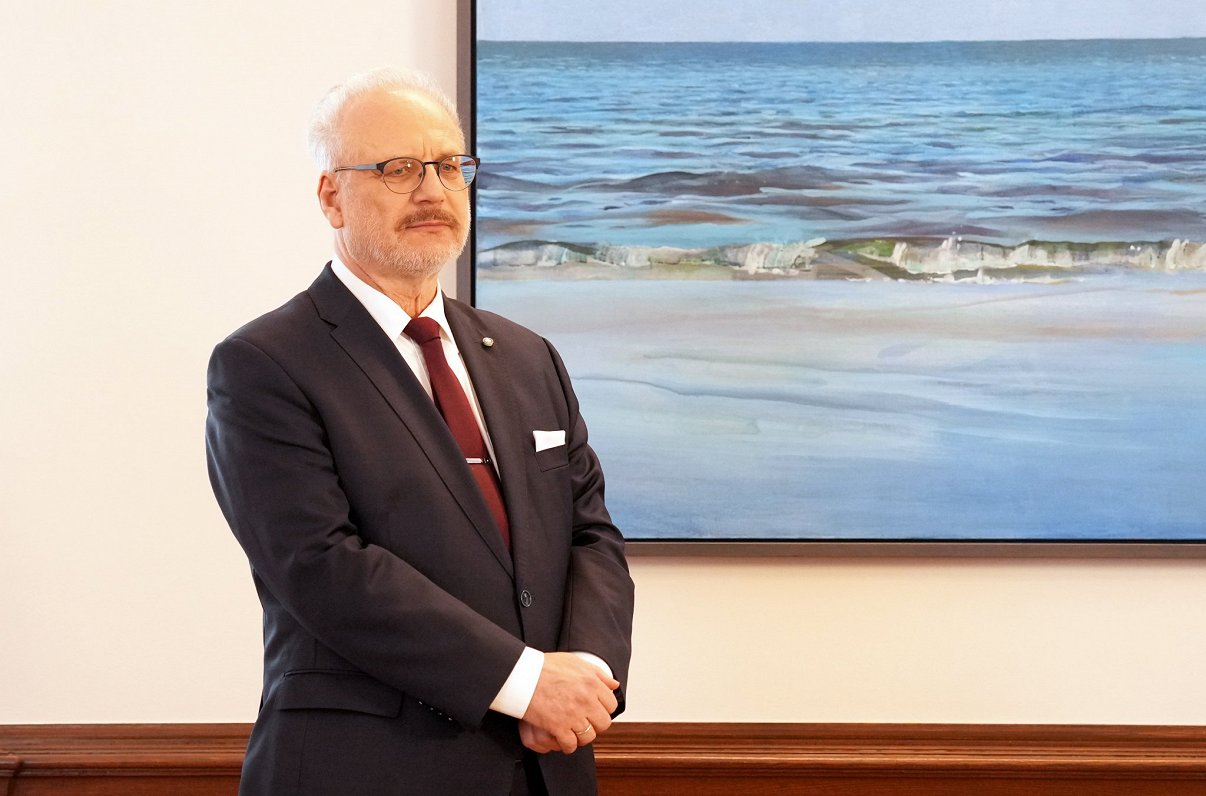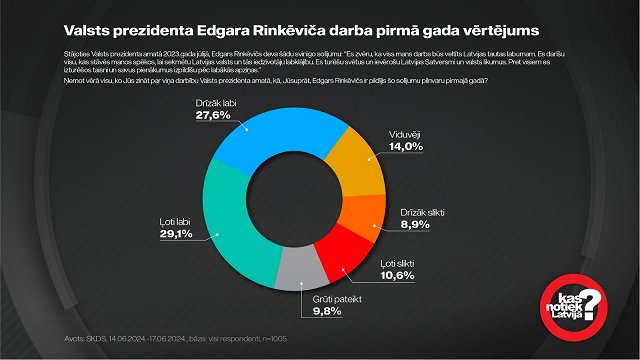The question of whether the next government's coalition would consist of three or four political forces should be decided at the end, the president said.
“First we, the voters, want to know what the new coalition will do, what its policies will be, what its decisions will be. This is the first thing to talk about. Then we need to look at the common elements between different parties and build a coalition accordingly,” Levits said.
In his opinion, these negotiations should carefully examine which issues can and cannot be agreed upon in each area.
Levits conceded that the four parties could quite easily agree on foreign policy and defense. More difficulties could be in the economy and social field. It is obvious that views will not overlap on the issue of civil unions.
“And then we will see which parties bring in more overlapping areas [..] who can cooperate [..] and who has good will,” the president said.
As previously reported by LSM, negotiations center on whether a narrow three-party, right of center coalition of New Unity, the National Alliance and the United List will form the executive, or whether a broader four-party model including the left-leaning Progressives will be preferable.





























